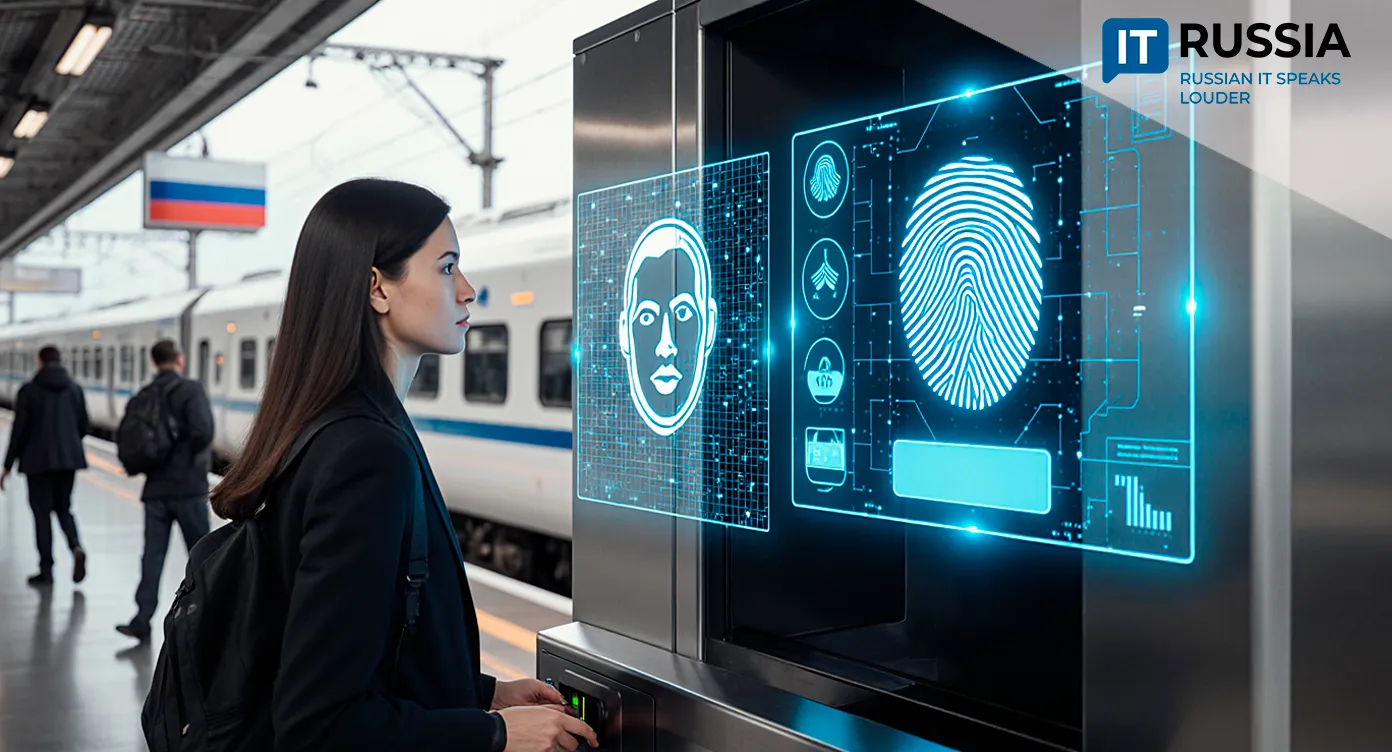Train Tickets Without a Passport: Russia Rolls Out Biometric Boarding

Starting September 1, 2025, long-distance train travel in Russia will get easier: passengers will be able to buy tickets and board trains using biometric data via the national Unified Identification and Authentication System (ESIA) and Unified Biometric System (EBS) systems.
A Technological Breakthrough
This may sound futuristic, but it is already happening—biometric control is being rolled out at scale across Russian railways. The option has already been tested on high-speed trains and will now be available to any carrier capable of integrating the technology. The change removes most barriers: no passport, no plastic cards—identity verification and boarding take just seconds. This is particularly useful for business travelers, families with children, or elderly passengers, for whom replacing lost documents can be challenging.
For Russian Railways (RZD), the integration of biometrics is another step toward automation and digitalization. It improves safety, eliminates ticket fraud, and reduces operator errors. For the country as a whole, it showcases the maturity of national digital systems—ESIA, which covers government services, and EBS, which integrates banks, telecoms, and major transport companies.

Where Biometrics Is Heading
If Russia’s experiment proves successful—and the technology has already been piloted in banking, construction, migration control, and real estate—the country could export these solutions abroad. For international operators, especially in Asia, the CIS, and the Middle East, biometric transport systems that provide both security and speed could become a highly attractive product. Beyond rail, biometric verification is expected to expand into aviation, metro, and public transit.
Future prospects also include integration with payment and service platforms: automatic entry to platforms with simultaneous payment for tickets, food, and luggage. Biometrics may eventually cover sectors such as education and healthcare, turning the national ID system into an increasingly valuable tool for digitalization and public services.
With major banks already connected to ESIA and EBS, identity verification has become easier even in remote regions. The growth of biometrics is fueling investment in AI, big data processing, and security hardware solutions.

How Biometrics Evolved
The adoption of biometrics in daily life has been surprisingly fast. Just in the last year or two, several landmark projects were launched. Remote confirmation of real estate transactions via EBS became available, with remote registration services soon to follow. Construction sites in Moscow switched to biometric access control—face scans instead of badges have become standard practice.
In a migration experiment, data from over 4 million foreign nationals were collected and processed, underscoring the scale of the system. At the same time, Russia’s State Duma passed a law guaranteeing that biometric data submission remains voluntary and that refusal cannot be grounds for discrimination.
Step by step, biometrics is moving from 'pilot projects' into the backbone of Russia’s digital infrastructure—covering government services, healthcare, real estate, workplaces, and now rail transport.

Your Face Becomes Your Ticket
Russia’s push for digitalization and biometrics is gaining momentum. The integration of EBS, ESIA, and transport platforms is creating a unified ecosystem where people no longer need to remember dozens of passwords or carry stacks of documents. Convenience and security become baseline values—no lines at ticket counters, no paperwork, and for the system, the very act of boarding becomes an automatic point of verification.
The voluntary nature of biometric enrollment is a key principle. Russian legislation guarantees the right to refuse, ensuring no discrimination—an important safeguard amid global debates on data privacy.
In the coming years, the technology is set to expand further: pilot projects at airports and train stations, integration with mobile services, and even identity verification and payments 'by face.' Imagine boarding and paying without a ticket, leaving the station without showing a passport.
Russian biometrics is emerging as a technological hallmark, able to compete with Asian and European counterparts. Broad regulation, strong data protection, and operational transparency are key to building trust. Russia is already prepared for a paperless, queue-free digital future.










































